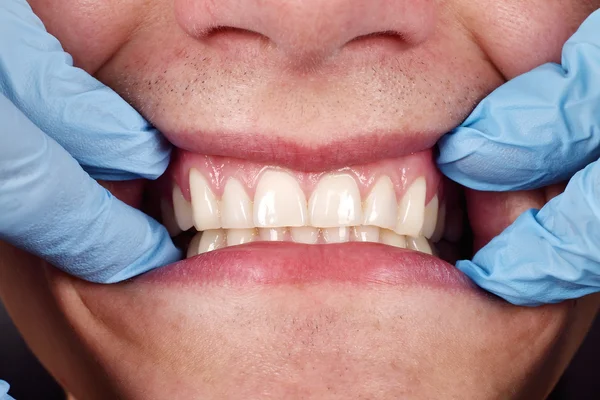What Is The Treatment For Gum Disease?
Types Of Gum Surgery & What To Expect
Gum surgery, also known as periodontal surgery, is performed to repair the damage that the gums have caused to the teeth and other areas of the mouth. People may think of gum treatment as a cosmetic procedure; nonetheless, there are several reasons why it should not be avoided. Gum surgery is performed on a patient to prevent serious issues such as tooth decay.
- Tooth loss
- Damage to tissues and bones
- Bacterial and viral infections
- Gaps between teeth
Gum Surgery: What Are The Different Types?
The majority of gum operations are performed to treat bacterial infections. Certain chronic conditions, as well as the medications used to treat them, can induce gum disease. Periodontal procedures have proven to be effective in achieving these goals. Let's look at the many sorts of gum operations and what to expect during and after the procedure.
- Flap surgery is a frequent surgical procedure for removing germs buildup on the teeth. Bacteria can grow in the space between the gums and the teeth in some cases. The gums are flapped up and bacteria is extracted to eliminate this.
- What to Expect: Following the cleaning, the gums will be stitched. During this surgery, the bone may need to be reshaped in some cases.
- When the bone that surrounds the roots of the teeth becomes injured, bone grafting is performed. The old injured bone is replaced with a new bone in this replacement surgery. The operation is carried out in order to aid tooth regeneration.
- What to Expect: The bone that has to be replaced might be the patient's bone. It can also be a donated one, or artificial bones can be produced to aid with this reason thanks to technology breakthroughs.
- Guided Tissue Regeneration: This is a good way to encourage tissue and bone formation. To avoid interfering with one another, a thin membrane-like substance is inserted between the tissue and the bone. This is a necessary surgery to prevent overgrowth of bones or tissue, which can lead to a variety of issues.
- What to Expect: Before starting the therapy, the dentists will recommend that you have a flap operation to remove all of the germs.
- Tissue Grafting: Tissue grafting is similar to bone grafting in that tissues are replaced. It's possible that the tissue will be damaged or absent in some cases. This is a successful surgical treatment that promotes tissue regeneration.
- Expect the following: Again, the tissue utilized to replace it might come from the patient or come from a donor. This therapy has no artificial ingredients.
- Crown Lengthening: Another sort of cosmetic surgery is crown lengthening. To make the teeth appear longer, the gums that have grown longer than the teeth are chopped off.
- Expect the following: When the gums are removed, it is a little unpleasant, and you will be uncomfortable for a while.
Before & After Surgery Preparation Guide
The forms of gum surgery listed above are the most commonly recommended by dentists for gum-related issues. However, it is preferable to be aware of how to prepare for it as well as the recovery process.
Preparation: It is preferable to begin preparing for surgery as soon as possible. It is strongly advised that you avoid taking any drugs, including aspirin and pain relievers. Because the procedure is performed using antibiotics, your recovery should be unaffected. Furthermore, it is suggested that you do not smoke or consume alcoholic beverages for at least 24 hours before to the procedure. These precautions are necessary since it is preferable to avoid adverse effects as much as possible.
Finally, to prepare for surgery, it is important to follow the doctor's directions. Inform your family members about the situation, since they may be concerned as well.
Surgical Preparation: The majority of the procedure is performed under local anesthetic. However, your cooperation is required as well. After the procedure, the surgeons may administer a gel or ointment. Make sure it stays until the doctor says it's time to take it out. Also, take detailed notes on what your doctor says about food consumption.
Preparing for Surgery: Make sure you're ready for the wound to heal. We must recognize that the length of your recuperation is determined by the severity of your gum disease. It may be unpleasant for you, and the tooth may bleed from time to time. However, they are not to be concerned about because they are typical. Please refrain from smoking or consuming alcoholic beverages for a day or two until the wound has healed.
There are a few medical procedures that do not necessitate brushing your teeth. You can employ a doctor-recommended remedy. Please pay close attention to that. If your doctor advises you to avoid particular foods, please follow his advice and stay healthy.

